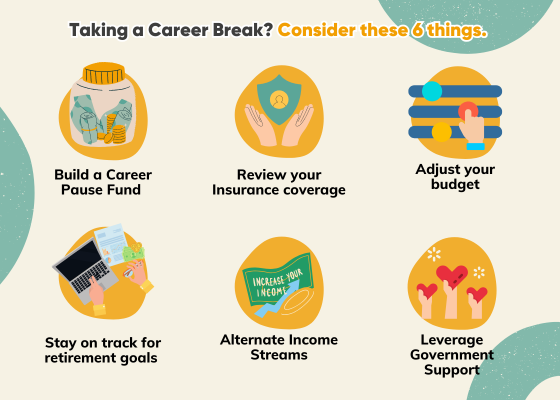Note: It was announced in November 2023 that MoneyOwl will be acquired by Temasek Trust to serve communities under a re-purposed model, and will move away from direct sale of financial products. The article is retained with original information relevant as at the date of the article only, and any mention of products or promotions is retained for reference purposes only.
______________
Being a parent is one of the most life-changing events one can experience. While every child is a blessing, parents need to plan so that your children do not become a financial burden. With rapidly rising prices today, it is more important than ever to minimise cost, while maximising the joy from your children.
Here are 10 tips to help you save and plan for your growing family’s financial future.
Tip 1: Maximise Government Grants
One of the best ways to manage expenses in the first few years after your child’s birth is to take advantage of the generous grants from the Government.
One of the must-knows is the Baby Bonus scheme, which comprises a cash gift and the Child Development Account (CDA).
The CDA has two parts: a First Step grant, and as well as a dollar-for-dollar co-matching by the Government. You can use the CDA to pay for your child’s childcare fees, medical expenses and even selected items at pharmacies – so why not maximise the grant? You don’t have to contribute the full sum, and can instead make smaller contributions over time.
| Birth Order | Baby Bonus Cash Gift | CDA: First Step Grant | CDA: Max Govt Co-Matching | Total Max Cash from Govt |
|---|---|---|---|---|
| 1st child | $8,000 | $3,000 | $3,000 | $14,000 |
| 2nd child | $8,000 | $3,000 | $6,000 | $17,000 |
| 3rd child | $10,000 | $3,000 | $9,000 | $22,000 |
| 4th child | $10,000 | $3,000 | $9,000 | $22,000 |
| 5th and subsequent child | $10,000 | $3,000 | $15,000 | $28,000 |
On top of these, Singaporean children enjoy free nationally recommended vaccinations and childhood developmental screenings, and a $4,000 top-up into their CPF MediSave account, which can be used to pay for MediShield Life premiums, hospitalisation, and other approved uses.
Tip 2: Draw A List And Set A Budget
Make a list of essentials when shopping for your baby or your child. These would include milk bottles, diapers, bedding, and a baby carrier or stroller. You should discuss with your other half to determine what are the essentials and set up a budget to prevent accidental overspending.
To help your cash flow (and curb your enthusiasm), you may also want to buy baby items in stages. For example, while an activity gym or playmat may seem irresistible, your baby will likely not use it until they are about 3 to 6 months old.
Tip 3: Free Is Best
It takes a village to raise a child. Your family, colleagues and friends may get you a gift for the baby. You can let them know your wish list so that they can help offset the costs of having a baby.
You can also ask friends who have kids slightly older than yours if they have anything to pass down. Most would be happy to offload or lend items to you.
There are also online sites where you can sign up and register for free samples of diapers, milk powder and even toiletries such as baby wash and lotions. It is a good way to try the items to see if they are suitable for your baby before you commit to a purchase.
Tip 4: Buy Cheaply
Most parents are surprised by how quickly their kids outgrow their clothes and shoes. Hence buying brand new clothing for your young ones could be a money-wasting mistake. Instead, you can check out online marketplaces for second-hand items, some of which may be brand new and going for a fraction of the original price.
You can also research the best place or time to shop to take advantage of promotions or sales before buying necessities such as diapers and milk powder in bulk.
Tip 5: Spend Time, Not Money
A Unicef report on child well-being in 2011 found that children were most happy when they spent more time with their family and at play.
Going out with your kids need not be costly to be fun and memorable. There are many free places where you can have fun with your children – from beaches, neighbourhood parks and outdoor playgrounds, to libraries and museums (if you want to escape the sun or the rain). All your child needs is your time and attention.
Tip 6: Build A Savings Buffer
With the addition of a new family member, it is more important than ever to build up your cash savings. This will help cover a financial emergency such as an unexpected expense (e.g. if your washing machine breaks down and you need a new one) or a loss of income. We generally recommend that you set aside 3 to 6 months’ worth of living expenses.
Tip 7: Insurance For Your Child
All Singaporean and PR babies are covered with MediShield Life from birth, which is sized to cover most of the bills for B2/C wards in public hospitals.
You may want to enhance your child’s hospital and surgical coverage by purchasing an Integrated Shield Plan and a rider if you want coverage to include private hospitals or higher ward classes and to help cover part of the co-payment.
If you have sufficient budget, you may also want to secure critical illness coverage for your children while they are young and in good health. This helps lock in their insurability for life, which means that the insurer will not throw in any exclusion in coverage if they are subsequently diagnosed with medical conditions. It can be paired with affordable term plans to keep premiums low.
You can also consider buying a personal accident plan for your child. Such plans tend to be affordable and cover injuries from accidents, food poisoning and infectious diseases such as dengue and hand-foot-mouth disease – scenarios which may not require your child to be warded.
Tip 8: Saving For Your Child’s Education
Some parents may think longer term and worry about paying for their children’s university education.
Considering if local university tuition fees increase by 4% each year, a 4-year local university course in 18 years’ time may come up to about $65,000.
It is not a small sum, but not insurmountable either. It helps to start saving early. The longer your runway, the smaller sum you need to put aside regularly. You can choose to purchase an endowment plan for certainty of returns, or invest in a low-cost, globally diversified fund. If you start early, the long time horizon will enable you to ride out the market volatility to achieve better returns.
Tip 9: Protect Yourself
If you are a breadwinner in your family, you’ll need to ensure that your family continues to be protected financially in the unfortunate event of your passing, disability or critical illness.
It is important that you have enough insurance coverage for yourself so your child and family will still be supported in case you are unable to work or are not around anymore.
Tip 10: Leave A Legacy, Not Heartache
Last but not least, you should draw up your will and CPF nomination to decide how your assets will be distributed in case you pass away prematurely and unexpectedly. A will allows you to appoint a guardian to care for your children, as well as an executor and trustee to manage your assets for your young children.
Disclaimer: While every reasonable care is taken to ensure the accuracy of the information provided, no responsibility can be accepted for any loss or inconvenience caused by any error or omission. The information and opinions expressed herein are made in good faith and are based on sources believed to be reliable but no representation or warranty, express or implied, is made as to their accuracy, completeness or correctness. Expressions of opinions or estimates should neither be relied upon nor used in any way as an indication of the future performance of any financial products, as prices of assets and currencies may go down as well as up and past performance should not be taken as an indication of future performance. The author and publisher shall have no liability for any loss or expense whatsoever relating to investment decisions made by the reader.
Follow MoneyOwl on social media for more awesome content on investments, insurance, and financial planning!




